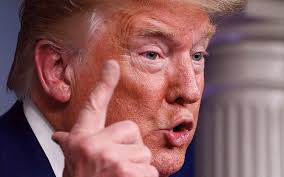World
Obama set for executive action on immigration

Washington: A defiant President Barack Obama is all set to take executive action to protect up to five million of about 11.2 million illegal immigrants, including about 450,000 from India, from deportation.
Obama’s plans to announce unilateral action Thursday to overhaul America’s “broken” immigration system puts him in confrontation with the Republicans who would take control of both Houses of US Congress in January following their victory in November elections.
“Tomorrow night I’m going to be announcing here from the White House some steps I can take to start fixing our broken immigration system,” Obama said in a video posted on Facebook Wednesday afternoon.
“Everybody agrees that our immigration system is broken. Unfortunately Washington has allowed the problem to fester for too long,” Obama said.
“So what’ I’m going to be laying out is the things I can do with my lawful authority as president to make the system work better even as I continue to work with Congress and encourage them to get a bipartisan, comprehensive bill that can solve the entire problem,” he said.
While 5.9 million Mexicans make up over half of unauthorized immigrants in the US, India is the fourth top source country after distant second El Salvador (675,000 in 2012) and Guatemala (525,000), according to a new Pew Research Centre report.
About 8.1 million unauthorized immigrants make up 5.1 percent of the US labour force, the report said. Many of them are engaged in menial low paying jobs that Americans don’t want to do.
While no details have been officially provided, the Washington Post citing an unnamed “senior Democrat familiar with the plans,” said Obama will announce temporary protections to up to five million undocumented immigrants.
His orders will allow up to 4 million undocumented immigrants to get temporary work permits and provide relief to another 1 million through other means, another report said.
However, there will be no guaranteed protections for the parents of so-called “Dreamers,”-children protected by Obama’s 2012 Deferred Action for Childhood Arrivals (DACA) programme – nor for immigrant agricultural workers, the Post said citing the Democrat.
CNN citing unnamed officials said the plan could include a stronger focus on deporting criminals who are undocumented immigrants and an expansion of worker visas in areas like technology.
With 168,367 H-1B visas, India cornered nearly two thirds of the total work permits for skilled workers in 2012.
The New York Times said the reprieved undocumented immigrants will also not receive government subsidies for health care available under his signature healthcare law, the Affordable Care Act that the Republicans have vainly tried to repeal numerous times.
Calling Obama’s plans “executive amnesty,” Republican Senator Jeff Sessions accused him of seizing sole power to decide who can live and work in the US. “Surrendering to illegality is not an option,” he was quoted as saying.
Republicans are considering different ways to stop funding for the president’s new measures and for the existing DACA programme, the Times said.
Democrat Senate Majority Leader Harry Reid, who will lose his post once Republicans take control of the chamber in January lauded Obama’s move, saying the opposition party forced his hand.
World
Lockdowns in China Force Urban Communities to Defy Censorship and Vent Frustration Online

Shanghai’s rich middle class is leading a wave of online dissent over the strict and prolonged lockdowns imposed in various parts of the country. Chinese internet censorship is struggling as patience is wearing thin in many urban centers, coming up with creative forms of online protests.
Social Media Posts Revealing Lockdown Tension in Shanghai
Drawn-out lockdowns are nothing new in China as authorities insist with the nation’s zero-Covid policy since the start of the pandemic. Currently over This time around, however, metropolitan areas like Shanghai are increasingly difficult to keep quiet, given that its more than 25 million residents have seen weeks of total isolation along with food shortages and many other service interruptions.
Dozens of towns and reportedly over 300 million Chinese citizens have been affected by lockdowns of different severity. As expected, urban netizens have been most outspoken over their difficulties by finding creative ways to get around state censorship and bans placed on topics, news comments and spontaneous campaigns.
Shanghai residents have been using mobile proxies and hijacking seemingly unrelated hashtags to talk about healthcare issues, delivery failures and the overall severity of their situation. The “positive energy” that the Chinese government wants to transmit during the recent prolonged series of lockdowns does not come naturally to those counting food supplies and online censors are working hard to filter words, trending topics and undesired social media sharing.
WeChat groups and message threads are under constant monitoring. Posts questioning the zero-Covid approach have been quickly deleted, including by leading Chinese health experts like Dr. Zhong Nanshan. Video footage is soon censored and protests and investigations are quickly made to disappear.
Where this has not worked, officials have exposed banners with warnings and outright threats like “watch your own mouth or face punishment”, while drones have been patrolling the city skies. Yet, if anything, this has led to further tensions and unspoken confrontation with Shanghai’s educated and affluent middle class.
Creative Online Solutions Harnessing Civic Energy
Announcements by Chinese social media that they would be publishing the IP addresses of users who “spread rumors” have not helped either. Tech industry research has shown that much of Asia’s tech-savvy population has a habit of using mobile proxies and other privacy tools, quickly finding workarounds to browse the internet freely and talk to the world about the hottest topics.
The sheer volume of forbidden posts is already a challenge for the very censorship system, experts explain. Unable to track all trending hashtags, state workers overlook topics that speak about the US, Ukraine or other popular news. Linking human rights elsewhere to their situation, Chinese online dissidents establish their informal channels and “hijack” the conversation to share personal or publicly relevant information about the Covid suppression in their town.
Sarcastic and satirical posts still dominate. Others hope to evade the censors by replacing words from famous poems or the national anthem. One thing is certain – social media, when harnessed with the right creativity, has proven its ability to mount pressure on the government in even some of the most strictly controlled tech environments like China.























